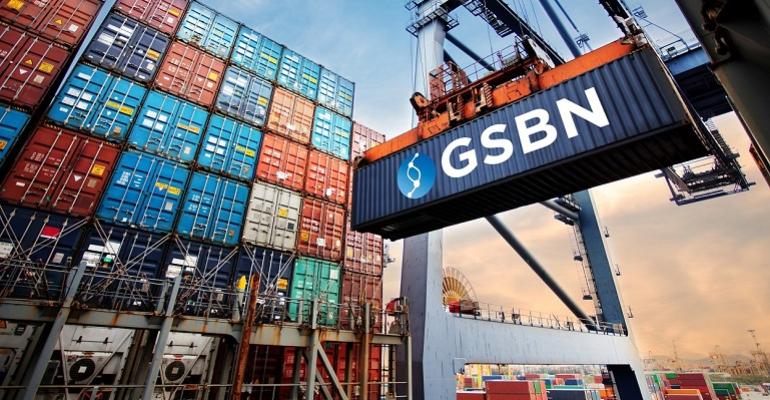GSBN commissioned Sia Partners, a global consultancy, to conduct the study, "Impact of Digitalization in Driving Decarbonization in Shipping”. It proposes comprehensive models based on live cases to quantify the opportunities that digitalised documentation processes represent for a sector that is a cornerstone of global trade. These include the adoption of electronic Bills of Lading (eBL) and the use of paperless solutions during the cargo release process.
The study suggests that the absence of a universally adopted digital platform creates interoperability challenges, complicating efforts to reduce carbon emissions.
Against this backdrop, GSBN's comprehensive global data infrastructure emerges as a good candidate to support interoperability and facilitate the transition to a digital ecosystem. Unlike blockchains such as the Bitcoin network, GSBN’s blockchain infrastructure adopts a more energy efficient consensus algorithm ensuring its carbon footprint is in line with sustainability goals.
Highlights from the study include:
As carriers pledge to fully adopt eBLs by 2030, the transition of the estimated 15.8 million paper bills issued annually could reduce CO2e emissions by up to 440,820 metric tons. As a point of reference, the annual emissions for the European country of Andorra are 470,000 metric tons.
The potential CO2e reduction per electronic bill of lading (eBL) is about 27.9 kg approximately, and about 16.9 kg approximately for an electronic Delivery Order (eDO).
In 2023, over 120,000 eBLs and more than 1 million shipments using GSBN’s Cargo Release solution contributed to an estimated CO2e reduction of up to 20,248 metric tons.
The study concludes with actionable recommendations for the industry, emphasising the need for widespread digital adoption, enhanced data integrity and interoperability, as well as the removal of legal barriers to accelerate towards a greener future for global shipping.
The latest study is part of GSBN’s ongoing efforts to partner with organisations including DNV, Global Centre for Maritime Decarbonisation (GCMD), Mærsk Mc-Kinney Møller Center for Zero Carbon Shipping (MMMCZCS), to pave the way to support the industry’s decarbonisation transition.
Copyright © 2024. All rights reserved. Seatrade, a trading name of Informa Markets (UK) Limited.
Add Seatrade Maritime News to your Google News feed.  |

